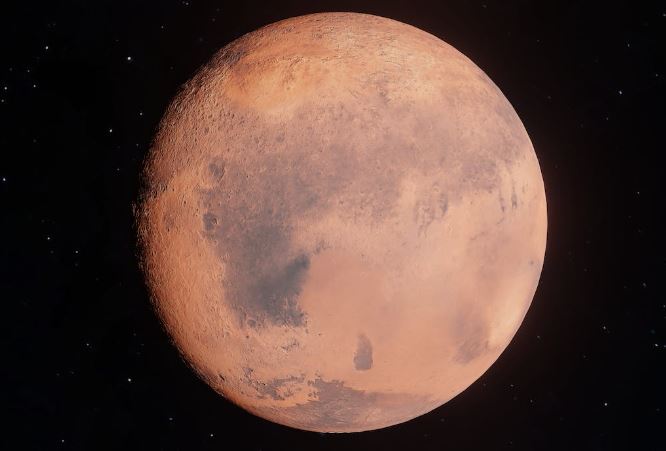
Scientists surprised by source of largest quake detected on Mars
Oct 19, 2023
Washington [US], October 19: NASA's InSight lander detected the largest quake yet recorded on Mars, one with a 4.7 magnitude - fairly modest by Earth standards but strong for our planetary neighbour.
Given Mars lacks the geological process called plate tectonics that generates earthquakes on our planet, scientists suspected a meteorite impact had caused this marsquake. But a search for an impact crater came up empty, leading scientists to conclude that this quake was caused by tectonic activity - rumbling in the planet's interior - and giving them a deeper understanding of what makes Mars shake, rattle and roll.
NASA retired InSight in 2022 after four years of operations. In all, InSight's seismometer instrument detected 1,319 marsquakes.
Earth's crust - its outermost layer - is divided into immense plates that continually shift, triggering quakes. The Martian crust is a single solid plate. But that does not mean all is quiet on the Martian front.
The researchers determined that the 4.7 magnitude quake was centred in the Al-QahiraVallis region in the Martian southern hemisphere, roughly 1,200 miles (2,000 km) southeast of InSight's location just north of the equator. They think it originated perhaps a few dozen miles (km) below the surface.
The energy it released surpassed the cumulative energy from all the other marsquakesInSight recorded. The researchers initially noted similarities in its seismic signature to two meteorite impacts detected by InSight that gouged craters roughly 500 feet (150 meters) wide.
They enlisted the various space agencies with spacecraft monitoring the Martian surface - the European, U.S., Chinese, Indian and United Arab Emirates agencies - to check for evidence of an impact on the day of the quake. No luck.
With future human missions to Mars in mind, a greater understanding of Martian seismic activity is pertinent.
Charalambous said the location of the majority of the marsquakes detected by InSight remained uncertain, with a poor understanding of the mechanisms that triggered them.
Source: Fijian Broadcasting Corporation









